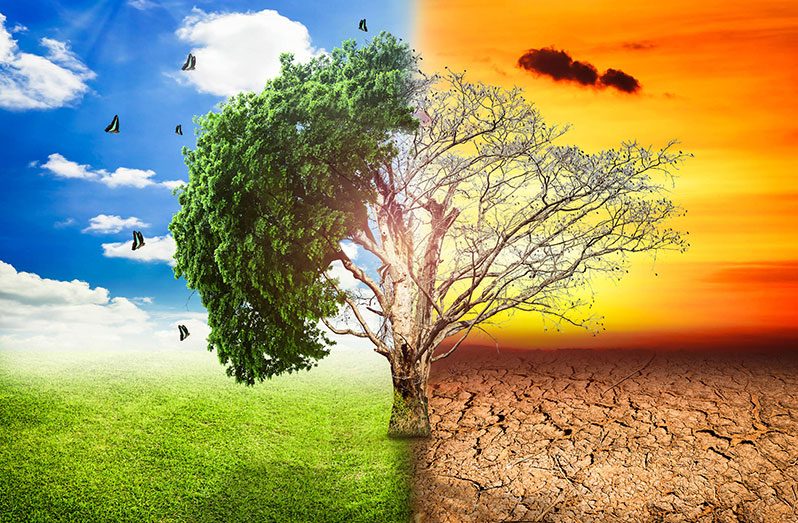By Cindy Parkinson
CLIMATE change is the single biggest health threat facing humanity worldwide.
Latin America and the Caribbean (LAC) are at great risk due to climate change. The region’s economies and households are impacted by changes in sea level, temperature, rainfall patterns and the frequency and severity of extreme weather events.
In late October, the Inter-American Development Bank (IDB) held a workshop for journalists via virtual platform, Zoom on “Climate Change: Concepts and Narratives.”
Tailored to English and Spanish-speaking journalists, the IDB programme was focused on adding a programmatic lens to already-existing coverage of climate change in the Americas.
The event was coordinated by Michelle Soto, editor of the weekly publication, Ojo al Clima, in Costa Rica, and Graham Watkins, Chief of the IDB Climate Change Division.
Recognising that in a region vulnerable to the effects of climate change, the workshop organisers shared best practices for media workers to develop persuasive narratives to educate the public and raise awareness of the issues relating to climate change.
Kayla Young, a journalist from the Cayman Islands who represented the Caribbean at the workshop, explained that, “the Caribbean is the most vulnerable region in the world to climate change, yet there is limited awareness within the region and around the world.”
In a survey with some 2,600 respondents, it was noted by the young journalist that 60 per cent of them believe that climate change is linked entirely or mostly to human activities, while 34 per cent believe that it is caused equally by human and natural changes.
Poor public understanding of the disproportionate health effects of climate change on certain populations has led to limited public awareness of the potential impacts on water, and food safety and security.
The Caribbean’s population is more likely to obtain “a moderate amount” of their information about climate change from the news, according to Ms. Young. She also pointed out that the news is not necessarily the most reliable source of information.
Young emphasised that there is insufficient coverage of climate change as well as insufficient data within the Americas. “Latin America and the Caribbean have been ‘lumping’ with little insight on the Caribbean or Small Island [Developing] States who find it difficult to get data from the government—if the data exists at all.
“Every island is unique and we may not know where to find the data and what to do with it once we have it,” said Young. Special emphasis was also placed on the tested methods for covering countries and civil society, as well as a focus on fulfilling climate change-related agreements at the national level.
Last November, President, Dr. Irfaan Ali participated in the 26th meeting of the Conference of the Parties (COP26), where he said in part, “our planet is ailing.
“Human activity continues to pollute our land and contaminate our waterways while heat-trapping greenhouse gases warm the planet. Global temperatures are fast approaching a doomsday scenario. Our planet, in turn, is revolting.
“Rising sea levels and extreme weather events are among its most rebellious eruptions. For climate vulnerable states, particularly small island developing and low-lying coastal states, the adverse effects of climate change are inflicting debt, destruction, pain and even worse, are threatening our very existence.”
His Excellency went on to say that “climate-vulnerable states can be viewed through this lens, which emphasizes our vulnerabilities, but we can also be viewed through another lens, one which highlights our ambitions.
“Small Island Developing States [SIDS] and low-lying coastal states are not lacking in ambition. Many of us are already punching above our weight in response to the climate crisis.”
COP 27 will be held in the Egyptian city of Sharm El-Sheikh from November 6–18, 2022, and will be attended by heads of state, ministers, mayors, environmental activists, civil society representatives and multilateral organisations.



.jpg)








